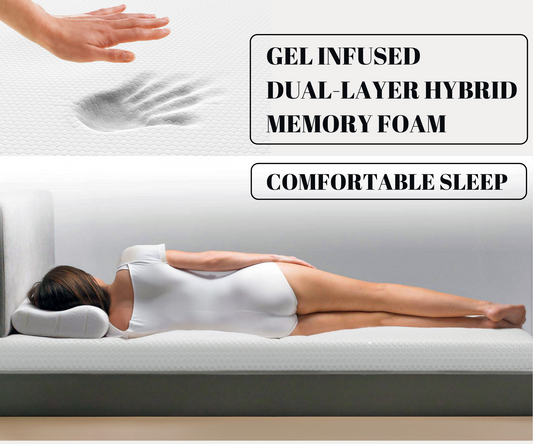Mental Health Awareness: The Importance of Sleep
The intricate relationship between sleep and mental health has garnered significant attention in recent years, as researchers delve deeper into how these two aspects of human well-being influence one another. Sleep is not merely a period of rest; it is a vital process that allows the brain to recover, consolidate memories, and regulate emotions. When individuals experience quality sleep, they are better equipped to handle stress, make decisions, and maintain emotional stability.
Conversely, poor sleep can exacerbate mental health issues, creating a vicious cycle that can be challenging to break. Studies have shown that individuals who suffer from sleep disorders, such as insomnia or sleep apnea, are at a higher risk of developing mental health conditions like anxiety and depression. The National Sleep Foundation highlights that sleep disturbances can lead to increased irritability, mood swings, and cognitive impairments.
This connection underscores the importance of prioritizing sleep as a fundamental component of mental health care. By understanding the bidirectional relationship between sleep and mental health, individuals can take proactive steps to enhance their overall well-being. Check out this amazing Memory Foam Mattress Topper for a better night's sleep.
The Impact of Sleep Deprivation on Mental Health
Cognitive Impairment
Research indicates that even short-term sleep deprivation can impair cognitive functions such as attention, memory, and decision-making, which are crucial for maintaining emotional balance. Moreover, chronic sleep deprivation can lead to more severe mental health issues over time.
Sleep Deprivation and Mood Disorders
For instance, individuals who consistently get less than the recommended seven to nine hours of sleep per night may find themselves more susceptible to developing mood disorders. A study published in the journal "Sleep" found that individuals with insomnia were ten times more likely to experience depression than those who slept well.
The Critical Need for Addressing Sleep Deprivation
This alarming statistic highlights the critical need for addressing sleep deprivation as a potential precursor to more serious mental health conditions.
Tips for Improving Sleep Quality
Improving sleep quality is essential for enhancing both physical and mental health. One effective strategy is to establish a consistent sleep schedule by going to bed and waking up at the same time every day, even on weekends. This practice helps regulate the body's internal clock, making it easier to fall asleep and wake up naturally.
Additionally, creating a relaxing bedtime routine can signal to the body that it is time to wind down. Activities such as reading, meditating, or taking a warm bath can promote relaxation and prepare the mind for restful sleep. Another important factor in improving sleep quality is the environment in which one sleeps.
A dark, quiet, and cool room can significantly enhance the ability to fall asleep and stay asleep throughout the night. Investing in blackout curtains or using a white noise machine can help create an ideal sleeping environment. Furthermore, limiting exposure to screens before bedtime is crucial; the blue light emitted by phones, tablets, and computers can interfere with the production of melatonin, the hormone responsible for regulating sleep.
By implementing these strategies, individuals can foster an environment conducive to restorative sleep.
The Role of Memory Foam Mattress Toppers in Improving Sleep
Memory foam mattress toppers have gained popularity as an effective solution for enhancing sleep quality. These toppers are designed to conform to the body's shape, providing support and alleviating pressure points that can disrupt sleep. By distributing body weight evenly across the surface, memory foam toppers can help reduce discomfort and promote better spinal alignment during sleep.
This is particularly beneficial for individuals who suffer from chronic pain or discomfort due to existing mattresses that may be too firm or worn out. In addition to physical comfort, memory foam mattress toppers can also contribute to improved sleep quality by minimizing motion transfer. For couples sharing a bed, this feature is especially advantageous; when one partner moves during the night, the other is less likely to be disturbed.
This uninterrupted sleep can lead to deeper rest and ultimately enhance overall mental well-being. Furthermore, many memory foam toppers are designed with cooling technology to regulate temperature throughout the night, addressing another common barrier to quality sleep.
How Adequate Sleep Can Benefit Mental Health
Adequate sleep plays a crucial role in maintaining optimal mental health by fostering emotional resilience and cognitive function. During deep sleep stages, the brain engages in essential processes such as memory consolidation and emotional regulation. This restorative phase allows individuals to process experiences from the day and integrate them into long-term memory effectively.
As a result, those who prioritize sufficient sleep often report improved mood stability and enhanced problem-solving abilities. Moreover, adequate sleep has been linked to better stress management. When individuals are well-rested, they are more capable of coping with daily challenges and setbacks without becoming overwhelmed.
Research has shown that good sleep hygiene can lead to lower levels of anxiety and depression symptoms. For instance, a study published in "JAMA Psychiatry" found that individuals who improved their sleep patterns experienced significant reductions in depressive symptoms over time. This evidence underscores the importance of prioritizing sleep as a foundational element of mental health care.
The Link Between Sleep Disorders and Mental Health Conditions
The relationship between sleep disorders and mental health conditions is complex and multifaceted. Sleep disorders such as insomnia, narcolepsy, and restless leg syndrome are often comorbid with various mental health issues, including anxiety disorders, depression, and bipolar disorder. The interplay between these conditions can create a challenging cycle; for example, anxiety may lead to difficulty falling asleep, while lack of sleep can exacerbate feelings of anxiety.
Research has demonstrated that treating sleep disorders can lead to significant improvements in mental health outcomes. Cognitive-behavioral therapy for insomnia (CBT-I) has emerged as an effective treatment option for individuals struggling with both insomnia and co-occurring mental health conditions. By addressing maladaptive thoughts and behaviors related to sleep, CBT-I helps individuals develop healthier sleep patterns while simultaneously alleviating symptoms of anxiety or depression.
This integrative approach highlights the importance of recognizing and treating sleep disorders as part of comprehensive mental health care.
Creating a Sleep-Friendly Environment for Better Mental Health
Creating a sleep-friendly environment is essential for promoting better mental health through improved sleep quality. One of the first steps in achieving this is optimizing the bedroom setting. A comfortable mattress and supportive pillows are fundamental components that contribute to restful sleep.
Additionally, minimizing noise pollution by using earplugs or sound machines can help create a tranquil atmosphere conducive to relaxation. Lighting also plays a significant role in establishing a sleep-friendly environment. Exposure to natural light during the day helps regulate circadian rhythms, while dimming lights in the evening signals to the body that it is time to wind down.
Incorporating calming colors into bedroom decor—such as soft blues or greens—can further enhance relaxation and create a peaceful ambiance. By thoughtfully designing a space dedicated to rest, individuals can foster an environment that supports both physical comfort and mental well-being.
Seeking Professional Help for Sleep and Mental Health Concerns
When sleep issues persist despite efforts to improve habits and create a conducive environment, seeking professional help becomes crucial. Mental health professionals can provide valuable insights into the underlying causes of sleep disturbances and their impact on overall well-being. Therapists trained in cognitive-behavioral therapy may offer tailored strategies for addressing both sleep problems and associated mental health conditions.
Additionally, medical professionals may conduct assessments to identify potential sleep disorders such as obstructive sleep apnea or restless leg syndrome that require specialized treatment. In some cases, medication may be prescribed to help manage symptoms effectively while working towards long-term solutions through therapy or lifestyle changes. Recognizing when professional intervention is necessary is an important step toward achieving better sleep quality and enhancing mental health outcomes.
In summary, understanding the multifaceted relationship between sleep and mental health is essential for fostering overall well-being. By prioritizing quality sleep through effective strategies and seeking professional help when needed, individuals can significantly improve their mental health outcomes while breaking free from the cycle of poor sleep and psychological distress.
Mental Health Awareness: The Importance of Sleep is a crucial topic that highlights the significant impact of sleep on our mental well-being. In line with this, an article titled "The Connection Between Sleep and Mental Health" from the list of links provides further insights into how sleep deprivation can lead to various mental health issues such as anxiety and depression. This article emphasizes the importance of prioritizing quality sleep to maintain good mental health.
FAQs
What is the importance of sleep for mental health?
Sleep plays a crucial role in maintaining good mental health. It allows the brain to rest and recharge, helps regulate emotions, and improves cognitive function. Lack of sleep can lead to increased stress, anxiety, and depression.
How many hours of sleep are recommended for good mental health?
The National Sleep Foundation recommends that adults aged 18-64 should aim for 7-9 hours of sleep per night for optimal mental health. Teenagers need 8-10 hours, while younger children and infants need even more.
What are the consequences of sleep deprivation on mental health?
Sleep deprivation can have serious consequences on mental health, including increased risk of developing anxiety disorders, depression, and other mood disorders. It can also impair cognitive function, decision-making, and emotional regulation.
How can improving sleep habits benefit mental health?
Improving sleep habits, such as maintaining a consistent sleep schedule, creating a relaxing bedtime routine, and creating a comfortable sleep environment, can lead to better mental health. Good sleep can help reduce stress, improve mood, and enhance overall well-being.
What are some tips for improving sleep for better mental health?
Some tips for improving sleep for better mental health include avoiding caffeine and electronic devices before bedtime, exercising regularly, and seeking professional help if experiencing persistent sleep problems or mental health issues.


